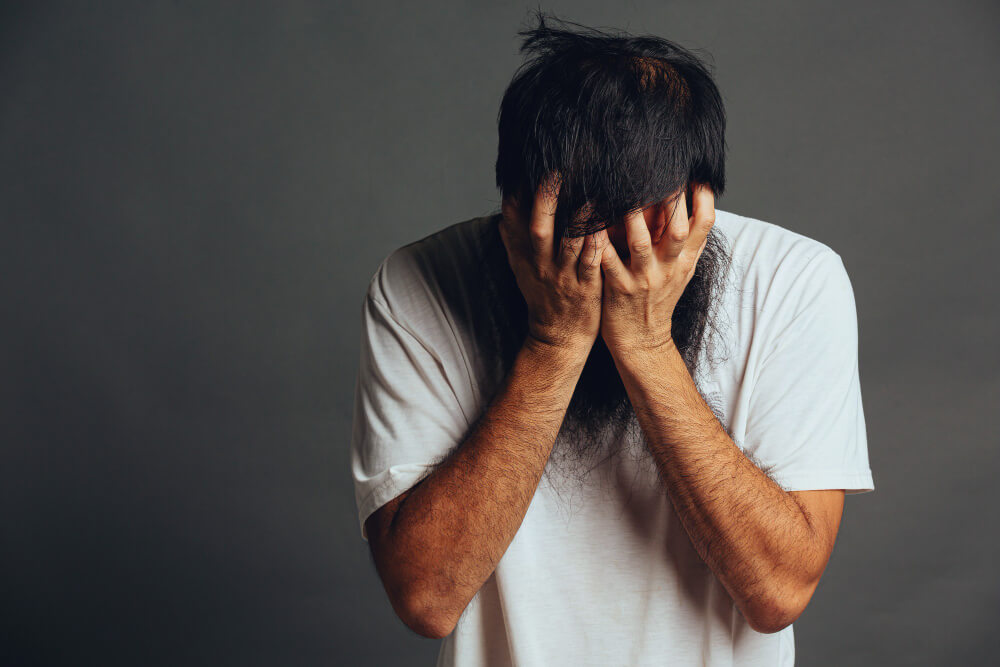Table of Contents
ToggleIntroduction
In the vast realm of mental health, agoraphobia stands as a unique and often misunderstood condition. This comprehensive guide aims to shed light on agoraphobia, exploring its intricacies, symptoms, and potential ways to cope. Let’s delve into this complex issue with the goal of not only raising awareness but also providing valuable insights for those grappling with this challenging condition.

Defining Agoraphobia
It is not merely a fear of open spaces, as the term might suggest at first glance. It is a nuanced anxiety disorder characterized by an overwhelming fear of situations or places where escape might be difficult or help might not be available in the event of a panic attack. This fear often leads individuals to avoid certain places or situations, limiting their daily activities.
Unpacking the Symptoms
Panic Attacks
Central to this disorder are recurrent panic attacks. These episodes are intense and often accompanied by physical symptoms such as chest pain, shortness of breath, and dizziness.
Avoidance Behaviors
Individuals facing this disorder frequently develop avoidance behaviors to sidestep potential triggers. This may include avoiding crowded places, public transportation, or any situation perceived as challenging to escape from.
Physical Symptoms
The anxiety associated with this mental illness can manifest physically. Symptoms such as sweating, trembling, and a rapid heartbeat are common, amplifying the overall distress experienced during an episode.

Root Causes of Agoraphobia
Understanding the origins of this disorder is crucial to devising effective coping strategies. While each case is unique, several common factors contribute to the development of this anxiety disorder.
Traumatic Experiences
Past traumatic experiences, such as accidents or instances of violence, can significantly contribute to the onset of this disease. The fear of a recurrence can lead to avoidance behaviors.
Genetic Predisposition
There is evidence suggesting a genetic predisposition to anxiety disorders, including this mental issue. Individuals with a family history of anxiety-related conditions may be more susceptible.
Neurochemical Imbalances
Imbalances in neurotransmitters, particularly serotonin and dopamine, have been linked to this disorder. These imbalances can amplify the brain’s response to stress and fear.

Coping Strategies for Agoraphobia
Living with such a disorder poses challenges, but there are effective coping strategies that can empower individuals to regain control over their lives.
Gradual Exposure
Gradual exposure to feared situations, under the guidance of a mental health professional, can desensitize individuals to triggers, reducing anxiety over time.
Cognitive Behavioral Therapy (CBT)
CBT is a widely recognized therapeutic approach for this disease. It helps individuals identify and change negative thought patterns, fostering a healthier mindset.
Medication
In certain instances, doctors may recommend medication as a means to alleviate symptoms. Antidepressants and anti-anxiety medications can be effective in managing the emotional aspects of this mental disorder.
The Importance of Seeking Support
Confronting this disorder is a journey that is often more successful with a support system in place. Friends, family, and mental health professionals can provide invaluable assistance and understanding throughout the process.
Conclusion

Agoraphobia, though challenging, is a condition that can be managed with the right strategies and support. By understanding its nuances, addressing root causes, and embracing effective coping mechanisms, individuals can navigate the path to recovery. If you or someone you know is struggling with agoraphobia, remember that help is available, and there is hope for a brighter, more liberated future.
Frequently Asked Questions (FAQs)

Q: What is agoraphobia?
Agoraphobia is an anxiety disorder characterized by an intense fear of situations or places where escape might be difficult or help might not be available in the event of a panic attack. Contrary to common misconception, it is not solely a fear of open spaces.
Q: What are the common symptoms of agoraphobia?
Common symptoms include recurrent panic attacks, avoidance behaviors, and physical manifestations like sweating, trembling, and a rapid heartbeat. These symptoms often lead individuals to limit their daily activities and avoid specific places.
Q: Are there specific causes for agoraphobia?
The causes of agoraphobia can vary, but common factors include past traumatic experiences, genetic predisposition, and neurochemical imbalances, particularly in serotonin and dopamine levels.
Q: How is agoraphobia diagnosed?
Agoraphobia is typically diagnosed through a thorough evaluation by a mental health professional. This may include discussions about symptoms, personal history, and the impact of anxiety on daily life.
Q: Can agoraphobia be treated?
Yes, agoraphobia is treatable. Effective treatments include gradual exposure therapy, cognitive-behavioral therapy (CBT), and, in some cases, medication. Seeking professional help is crucial for developing a tailored treatment plan.








